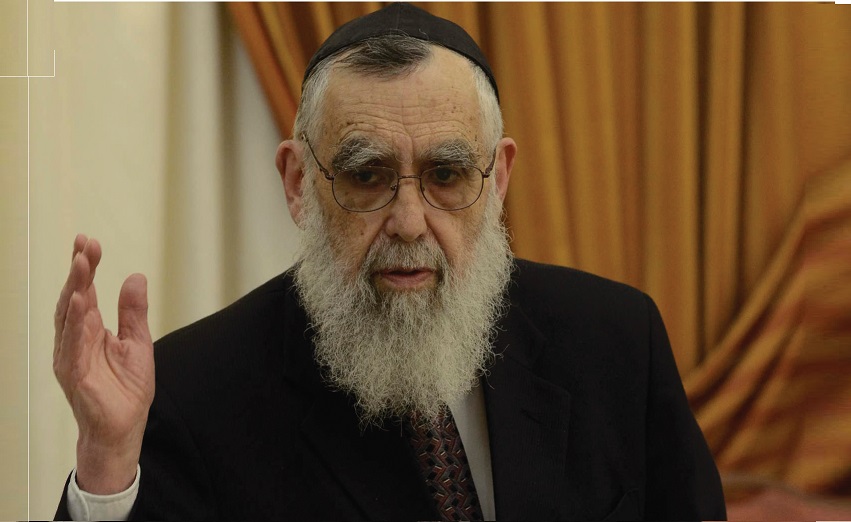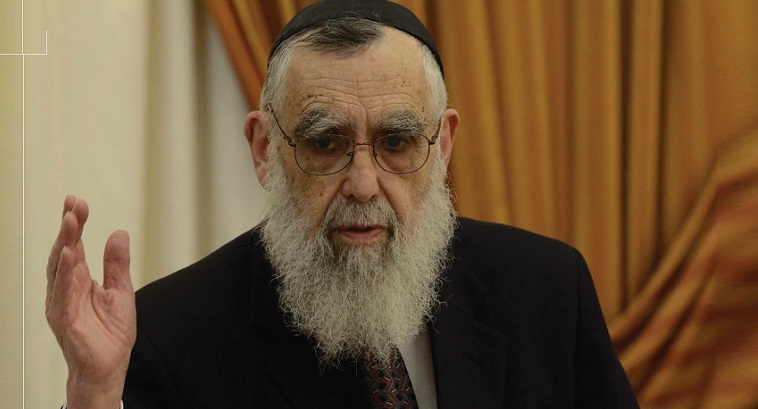Bircas Kohanim and Classical Music

Dance and rejoice with our musical blessings all year long
Recently, I was temporarily deprived of two important elements of my daily life.
One was the Bircas Kohanim, the Priestly Blessing at my daily Jerusalem morning minyan. In the Diaspora, that blessing is recited in Ashkenazi synagogues only on Yom Tov, unlike in Israel, where most synagogues recite it daily. During a recent sojourn outside of Israel, I keenly felt, each passing day, the absence of the Kohein’s “Yevarechecha Hashem v’yishmerecha — May the L-rd bless you and keep you.” When we finally returned to Jerusalem and on that first morning back I received the brachah again, my whole being felt enveloped in a pool of soothing waters, redolent of King Solomon’s “cool water to a fainting soul” and King David’s “He refresheth my soul (Mishlei 25:25; Tehillim 23:2). The rhythm of the blessing’s first three words, followed by the five words, followed by the seven words — so familiar to me from so many years — was fresh and restorative. I felt rejuvenated, my dormant spirits renewed.
The other missing element was classical music. I am not a musician, but my daily routine has always been accompanied by the great composers. During periods of national mourning, though — the Three Weeks before Tishah B’Av (which have just begun), and the post-Pesach period of Sefiras Ha’omer — the accepted halachic practice is not to listen to music. I miss my daily music fix during such periods — which of course is precisely the point: Whenever I do not turn to the music station, I remember that this is a period of historic Jewish sadness.
With the end of the post-Pesach Sefirah period and the advent of the Yom Tov of Shavuos, the music was restored to me. On that first morning, when I heard the familiar opening bars of a Beethoven symphony, I felt a kind of rekindling within me, a surge of renewal, as if a cherished long-lost friend had returned. The classic symphonies of that first day back brought with them freshness and rejuvenation — not entirely dissimilar, l’havdil, from the effect of the resumption of the Bircas Kohanim.
One cannot, of course, compare classical music — even the best of it — to the sacred words of Bircas Kohanim. Obviously, even the most finely crafted music can never attain the ethereal heights and subtlety of that magnificent 15-word brachah.
Nevertheless, one should not denigrate good music. Even though some composers were hardly exemplars of rectitude, what they created often contained, paradoxically, certain spiritual elements that on their own level have the ability to uplift and inspire. For true music — and here I exclude the raucous jungle beat that passes for music at most Orthodox weddings — is a spiritual, nonverbal language; it emanates from a higher, nonmaterial realm and possesses a transcendent quality that penetrates the soul.
Thus, the miraculous Splitting of the Sea is marked by the Shiras Hayam, the Song of the Sea. Similarly, the sacrificial service of the Beis Hamikdash was accompanied by the Levites and their songs. And, most significantly, the ancient prophets required a form of music in order to prophesy. Thus, Elisha the prophet, in Melachim II 3:15, requires music before the Divine spirit can descend upon him: “And when the musician played the music, the hand of the L-rd fell upon on Elisha.” Similarly, the prophetess Devorah, attempting to revive her prophetic powers, cries out, “Uri, uri — awake, awake, utter a song”(Shoftim 5:12). When an “evil spirit” descends upon King Saul, his advisors recommend that he find a musician to bring him inner peace, and so young David is brought in, primarily because of his musical abilities (Shmuel I 16:16). And according to some authorities, the Torah itself — and not just one section — is called a shirah, meaning “song” (Devarim 31:30, 32:44) because it penetrates the soul as only music can.
Music, then, is an integral element in the life of the spirit. Certainly it is absurd to utter the names of the classical composers in the same breath with Bircas Kohanim or King David, but it cannot be denied that the creations of many composers somehow engage the human soul, for their work emanates from something more than the physical.
What are the takeaways from all this? First, whatever blessings you have — spouse, children, parents, family — treasure them and hold on to them. They are the elements that bring celestial music to our lives; second, if you wish not to be deprived of Bircas Kohanim, don’t abandon the holiness of Eretz Yisrael; third, if you wish not to be deprived of good music, pray for the fulfillment of the Messianic vision of “machah Hashem dimah me’al kol panim” (Yeshayahu 25:8), when all tears will be wiped away and we can sing and dance and rejoice with our musical blessings all year long.
(Originally featured in Mishpacha, Issue 700)
Oops! We could not locate your form.




